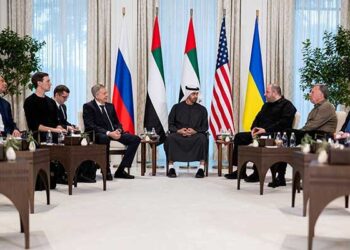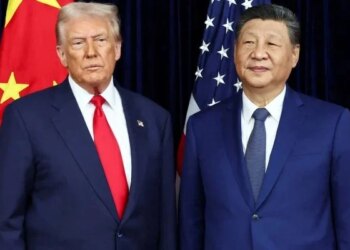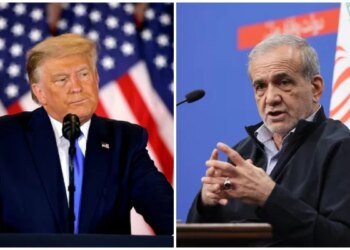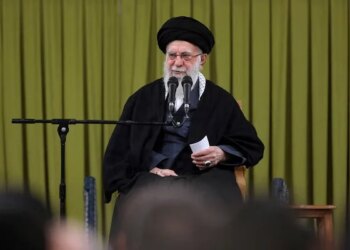Select Language:
- First meeting between Modi and Yunus since Hasina’s departure last year.
- Modi emphasizes the need for a democratic, stable, and peaceful Bangladesh.
- Yunus expresses his desire to collaborate with Modi to improve strained relations.
BANGKOK/NEW DELHI: During their first meeting since Sheikh Hasina was ousted as Bangladesh’s Prime Minister, Indian Prime Minister Narendra Modi urged the country’s interim leader to refrain from any inflammatory remarks that could harm bilateral relations, the Indian foreign ministry reported.
Relations between India and Bangladesh, previously strong under Hasina’s leadership, have soured since she left the country in August due to widespread student protests and sought refuge in India.
Muhammad Yunus, a Nobel Peace Prize laureate, recently assumed the role of Chief Advisor for Bangladesh’s interim government and met with Modi on the sidelines of the BIMSTEC summit in Bangkok.
“Prime Minister Modi emphasized that avoiding rhetoric that could poison relationships is crucial,” stated Indian Foreign Secretary Vikram Misri during a press briefing.
He added that Modi expressed India’s commitment to supporting a “democratic, stable, peaceful, progressive, and inclusive Bangladesh,” while also highlighting New Delhi’s intention to establish a “positive and constructive” relationship with Dhaka.
Officials from Bangladesh described the 40-minute dialogue between the two leaders as “open, productive, and constructive.”
Yunus conveyed his intention to collaborate with Modi to realign their nations’ ties for mutual benefits, according to a release from his office.
In Bangladesh, public sentiment has shifted against India, mainly due to its decision to harbor Hasina, with New Delhi remaining silent on Dhaka’s requests to extradite her for trial.
‘Atrocities’
Discussions included Bangladesh’s request for Hasina’s extradition, but details were not disclosed further, said Misri.
As part of the statement from Bangladesh, Yunus commented, “Hasina has made consistent, false, and inflammatory accusations against our interim government.”
He urged Indian officials to take necessary measures to prevent Hasina from making provocative statements while she remains in India, while Modi reassured that India does not take sides with any political party in Bangladesh.
India’s Misri noted that Modi asked Yunus to assist in maintaining border security and stability, expressing hope that Bangladesh would seriously investigate allegations of “atrocities” against minority groups, particularly Hindus.
The Indian government has frequently urged Bangladesh to ensure the safety of its Hindu minority, claiming they have faced targeted attacks since Yunus took over; however, Dhaka maintains that such violence is exaggerated and isn’t rooted in communal issues.
Harsh Pant, head of foreign policy at the Observer Research Foundation, an Indian think tank, mentioned that this meeting might mark the beginning of reviving diplomatic engagement. “At this stage, stabilizing the relationship should likely be the primary focus,” he added.
The two countries, which share a 4,000 km (2,500 mile) border, have deep cultural and economic ties.
Modi and Yunus met during the BIMSTEC summit in Bangkok, which also includes participation from Thailand, Myanmar, Nepal, Sri Lanka, and Bhutan.






